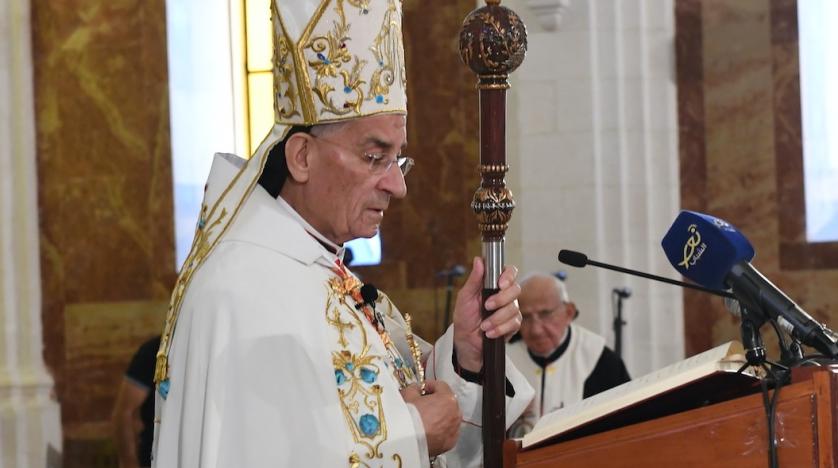
NNA – Maronite Patriarch, Cardinal Bechara Boutros al-Rahi, presided this morning over Sunday Mass service in Diman. In his religious homily, the Patriarch underlined that “dropping the new government formation issue cannot be accepted as it if were just a detail in the structure of the Lebanese state system, knowing that the Taif Agreement made the Council of Ministers, along with the Presidency of the Republic, the pivotal pillar and the center of the executive authority.” He added: “There is no value for appointing a new prime minister if it is not followed by cabinet formation…We are surprised that those involved in forming the government are belittling this matter, contrary to the Constitution and the Taif Agreement.” Al-Rahi stressed that “the formation of a new government is a sign of respect for the democratic system, ensuring the completion of the contract of constitutional institutions, the functioning of governance and the separation of powers, and the continuation of legitimacy through a government with full powers in the event of an obstacle, God forbid, with regards to electing a new President of the Republic.”
The Patriarch continued to consider that “the existence of a legitimate government gives the state the ability to negotiate with the Arab and international communities, to take decisions and sign treaties,” adding, “What we fear is that if the political forces are unable today to form a government, then tomorrow they will be unable to elect a new president…and hence the huge fall!” “But we hope and pray that it won’t happen…” he said.
Referring to the incident involving Archbishop Moussa al-Hajj, Patriarch al-Rahi considered that it constitutes a test of the extent of separating between religion and state. “Some were complaining about the interference of sects in the state, while the state attacked a constituent sect and a religious cleric, known for his piety and service to the people, who ought to have been respected by the state by preserving his movement between Lebanon and his parish…Instead, they fabricated an incident, turned it into a case, and organized media campaigns to distort the image of the Archbishop and the Church’s humanitarian and national mission…” He added: “We reaffirm that working with an ‘enemy country’ was never part of our culture, our spirit and our dignity. We are the first to respect and defend the laws, so we ask the authority to respect and abide by them. We are the first to respect and defend the judiciary, but we ask judges and judicial officials to respect the sanctity of the judiciary and liberate it from maliciousness and dependence on political and sectarian forces.”
The Patriarch, thus, highlighted the following demands pertaining to Archbishop Moussa al-Hajj’s case:
1. Return his Lebanese passport and mobile phone
2. Hand him back the entrusted money and medicines that he nominally carried to people and institutions
3. Ensure that he crosses from Naqoura, like all those before him, to his diocese back and forth without any arrest or search
4. Stop labeling the Lebanese citizens in occupied Palestine as “agents”
Al-Rahi warned that “if officials do not comply with these demands, they would be causing great harm to our diocese in the Holy Land as they prevent its bishop from visiting it, thus rendering the parish astray, and this is a serious matter for which they will be held accountable.”
On the other hand and marking Lebanon’s Army Day, the Patriarch said: “Tomorrow the Lebanese army celebrates its seventy-seventh founding anniversary, and we pray for it so that the Lord may protect it from dangers, develop it, strengthen the bond of its unity, and preserve the well-being of its members. We express our congratulations and best wishes to the Army Commander, officers and soldiers



